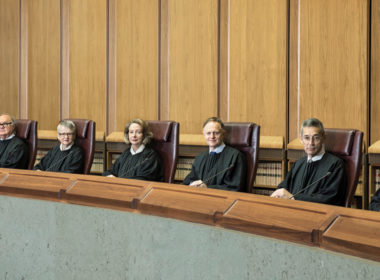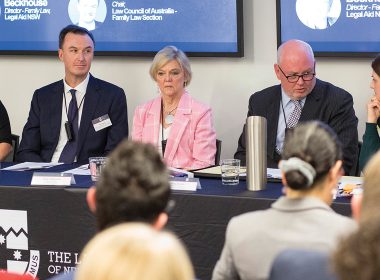Judicial impartiality is one of the core values of being a judge. I think Australia has a healthy degree of scepticism about authority and is watchful of issues like this.
Former High Court Justice Michael Kirby called it the “double-might” principle. That is, what might a person who is sitting in the back of the court, think that a judge might be influenced or biased by?
Any relationship, interest, or affinity with a case that could appear questionable in the lay observor’s mind should be declared, the former justice told LSJ. Where appropriate, judges should self-exclude themselves from cases.
But this rule is not always adhered to in the eyes of the public, according to recent media reports about an erosion of trust and confidence in Australia’s federal court judges. One high-profile complaint against a Family Court judge by a Perth-based real estate agent made its way to the High Court in August, revealing a judge and barrister in Western Australia were meeting for “secret” coffee and drinks while his case was under way, drawing criticism from members of the public.
The complaint will likely form part of submissions to a national review into federal judicial impartiality and bias, launched by the Australian Law Reform Commission (ALRC) in September. The review will consult widely with the legal profession and courts in considering the strength, clarity and efficacy of laws about actual or apprehended bias among judges.
“It is a fundamental principle of our legal system that a judge or magistrate must not sit on a case in which he or she is biased (‘actual bias’) or might reasonably be thought to be biased (‘apprehended bias’),” Attorney-General Christian Porter said when he referred the matter to the ALRC in September last year.
“This is clearly important both so that justice is not only done but also seen to be done. There are well established tests for actual and apprehended judicial bias but how these are applied can vary depending on the actual situation.”
The ALRC published a report in December noting its previous Family Law Inquiry had received a surprising number of complaints that indicated a lack of trust from members of the community about judges in the federal court system.
“Of the 732 contributions, 504 included a complaint relating to the Family Court of Australia system and procedures. 236 contributions involved a complaint specifically in relation to a judicial officer,” the report reads.
 Former High Court Justice Michael Kirby
Former High Court Justice Michael Kirby
The review will also query whether mechanisms for raising allegations of bias are sufficient and appropriate. It comes in the wake of calls for an independent body to be established to hold powerful judges to account, after troubling sexual harassment claims against former High Court judge Dyson Heydon were investigated and upheld internally in 2019.
Former Justice Kirby told LSJ he believed Australia did not have problems with a biased judiciary “on the whole”.
“Judicial impartiality is one of the core values of being a judge. I think Australia has a healthy degree of scepticism about authority and is watchful of issues like this. But on the whole, I think our judiciary is fairly rigorously impartial,” he said.
“In my role as co-Chair of the International Bar Association Human Rights Institute, we are dealing every week with complaints about corrupt governments, parliaments and biased courts. Australia does not often feature as a subject of complaint.”
Former Justice Kirby added that, regardless of what – if any – change the review would bring, it would contribute to public awareness and the “zeitgeist” around judicial impartiality, which is important.
“Judicial impartiality is a concept that evolves in understanding over time,” he said.
“We in Australia should be able to acknowledge that, following our long history of treating people without impartiality – such as women, Indigenous people, LGBTIQ people and other religious or social groups.”
The ALRC will release a consultation paper in April and make a formal call for submissions at that time. For any enquiries, email [email protected]



